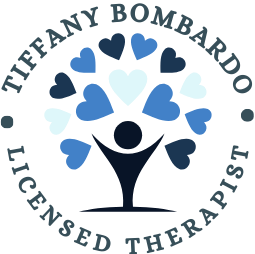What is anxiety and why is it a thing?
Description: Ever wondered why anxiety feels like a persistent guest at your mental dinner party? Dive into our latest blog, “What is Anxiety and Why is it a Thing,” where we break down what anxiety really is, why it shows up uninvited, and how to send it packing. We’ll tackle the criteria, the causes, and share some friendly tips to help you manage the jitters with a smile. Join us for a refreshing take on a topic that’s all too common but often misunderstood!
Key Points:
Diagnostic criteria for anxiety
Simple description of why it occurs
What you can do about it
Have you ever been so nervous that you have a pit in your stomach and can’t breathe? Does it ever feel like your chest is being constricted and you will, for sure, be passing away at any moment? I’ve felt this way too. Unfortunately, most of the world has felt this. These are common feelings associated with ~anxiety~, most of the time generalized anxiety.
According to the DSM-5 (that’s the big book therapist’s use to diagnose clients, you’ll hear me talk about this often), in order to diagnose generalized anxiety, there has to be symptoms present for at least 6 months. These symptoms can include, but aren’t limited to, struggles to control worries about different things, repetitive thoughts, restlessness, fatigue, difficulties with concentration, irritability, muscle tension, and sleep disturbance.
These symptoms occur when our mind identifies something, a thing, a person, a place, basically a noun, as a threat. This can be a perceived or an actual threat. The difference here is; is there actually a bear in front of you (real threat) or is there a picture of a bear in front of you (perceived threat). Either way, the body may release cortisol, adrenaline and other intense hormones to switch our bodies into what is commonly known as Fight or Flight. This response is supposed to help us survive these threats.
I know, I know. It seems weird that a survival technique can also make us feel as if we are having a medical emergency. Here’s the thing, sometimes our bodies get confused with all the information being absorbed from our environment and causes it to go into overdrive. This can lead to disorders such as generalized anxiety disorder, panic disorder, OCD, etc. The good thing is that these disorders can be reversed overtime with therapy and medication management.
In the meantime, coping skills are a good place to start. Coping skills can decrease anxiety and ultimately decrease the amount of cortisol dumped into the body which can make life feel more manageable. Click here to learn how and why deep breathing is going to be your new best friend.
References:
American Psychiatric Association. (2013). Diagnostic and statistical manual of mental health disorders (5th ed.).

